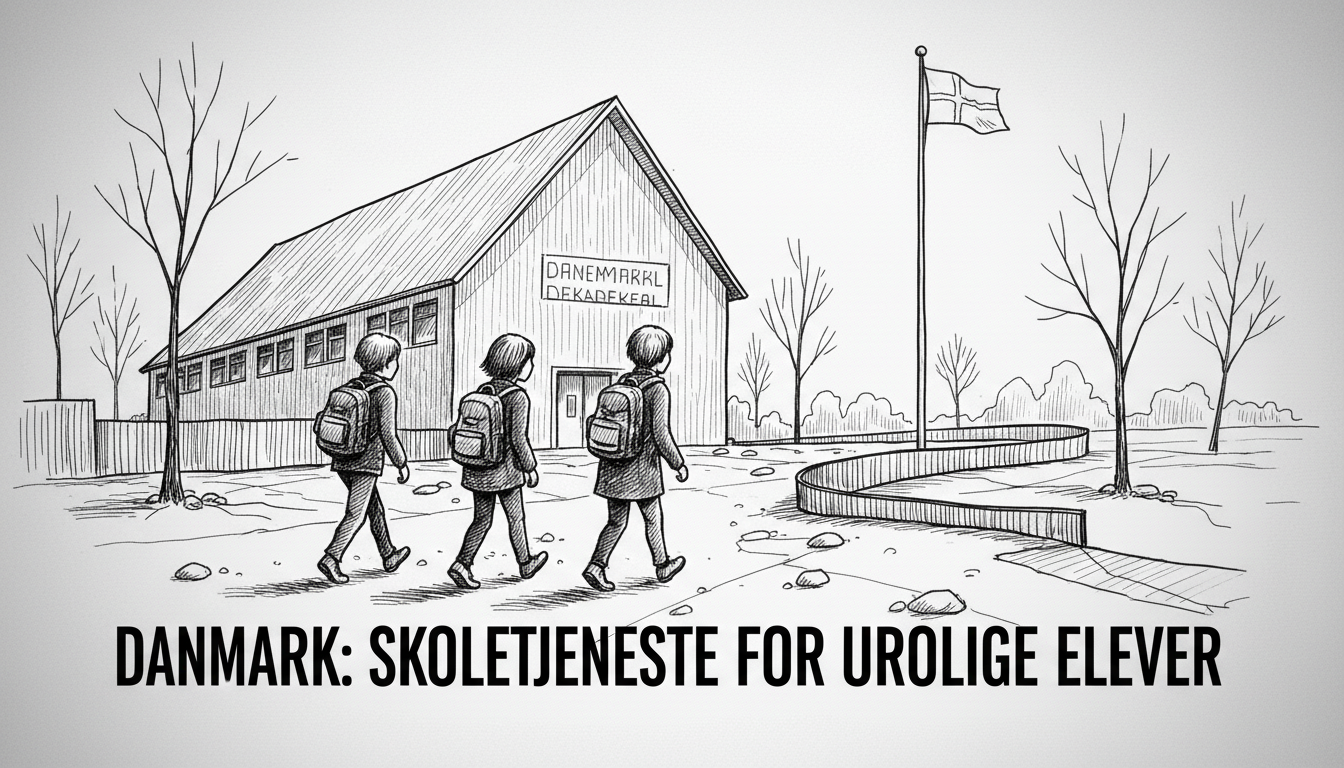The Danish government wants to strengthen disciplinary rules in public schools. Education authorities plan to allow school principals to assign misbehaving students mandatory school service duties. This represents a significant shift in how Denmark handles student discipline.
The Ministry for Children and Education announced the proposal this week. School service could involve tasks like cleaning classrooms or tidying school grounds. Students who violate school rules, values, or behavioral standards might receive these assignments.
Current rules require a direct connection between the offense and the punishment. A student who makes a mess might need to clean it up. The new proposal removes this requirement. School principals could assign any reasonable task regardless of the specific misbehavior.
Another major change involves suspension periods. The government wants to extend maximum exclusion from teaching from 10 to 15 school days per year. This gives schools more flexibility when dealing with serious behavioral issues.
Why is Denmark making these changes now? The country has been grappling with classroom discipline challenges for years. Danish schools traditionally emphasize democratic values and student autonomy. Some educators argue this approach has limitations when dealing with persistent behavioral problems.
The proposals also address long-term solutions for challenging students. School principals may soon decide to permanently remove students from their schools. Municipal councils would then provide alternative education options, possibly in youth schools.
Currently, principals can only recommend transferring students to other schools. Municipal authorities make the final decision. The new system would streamline this process while ensuring removed students still receive education.
These measures form part of a broader education reform package. The government will negotiate the proposals with political parties supporting the current school agreement. Denmark's coalition government needs cross-party support to implement these changes.
What does this mean for international families in Denmark? The changes could affect how schools handle discipline cases involving foreign students. Families should understand that Danish schools are strengthening their authority to maintain order.
The proposals reflect a trend toward stricter educational environments across Scandinavia. Neighboring countries have implemented similar measures to address classroom management challenges. Denmark now follows this pattern while maintaining its distinctive educational values.
School service assignments aim to teach responsibility rather than simply punish. The government emphasizes that these measures should help students understand community values. Critics question whether mandatory tasks effectively change behavior long-term.
The expanded suspension period raises questions about educational continuity. Students missing 15 days of instruction face significant academic challenges. Schools will need robust systems to support these students upon their return.
Danish education policy continues evolving to balance student rights with classroom order. These proposals represent the latest attempt to find that balance. The outcome will shape Danish classrooms for years to come.

